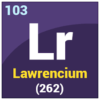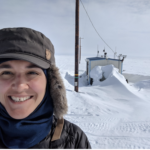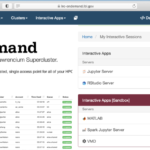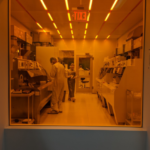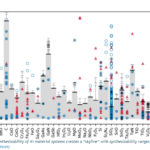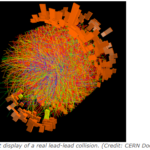Lawrencium 101 HPC Training The IT Division's Scientific Computing Group will be hosting a training session on how to get started on the Lab's institutional cluster Lawrencium. This is a great class for new or prospective users. Weds Nov 10, 2021, 3:00PM - 4:30PM via Zoom (zoom link will be … [Read more...] about Lawrencium 101 Training Nov 10
science
Using computation to uncover how Arctic soil microbes respond to the changing climate
By Erica Yee • Published April 15, 2021 Look up on a clear night and you might see quite a few of our galaxy’s 100 billion stars. Look down, however, and you’ll be hard pressed to see any of the 10 trillion cells in a single gram of soil. “Soil has amazing amounts of … [Read more...] about Using computation to uncover how Arctic soil microbes respond to the changing climate
Intro to Containers on Lawrencium Training
An Introduction to containers on Lawrencium training will be jointly presented by the HPC team at LBNL and the research consultants from UCB. This training will introduce you to the key concepts and tools for using containers, in particular Docker and Singularity containers. Containers make it easy … [Read more...] about Intro to Containers on Lawrencium Training
Open OnDemand is now available!
We are pleased to announce the release and support of Open OnDemand on the Lawrencium Supercluster. OnDemand provides a web-based approach for easy access to our HPC infrastructure. With OnDemand, you can upload and download files, create, edit, submit, and monitor jobs and connect via SSH, all via … [Read more...] about Open OnDemand is now available!
Open OnDemand Training Mar 10
Open OnDemand (OOD) is a browser-based High Performance Computing portal that provides an easy way to access HPC resources in addition to the conventional command line approach. The Scientific Computing Group now offers the Open OnDemand service for accessing Lawrencium and other dedicated research … [Read more...] about Open OnDemand Training Mar 10
Computing as a laboratory: How Molecular Foundry scientists model at the nanoscale
By Erica Yee • January 29, 2019 The Science IT Profiles series highlights how the Scientific Computing Group supports the work of Berkeley Lab researchers spanning various disciplines. In six of the seven facilities of the Molecular Foundry, scientists at benches or instruments, in lab … [Read more...] about Computing as a laboratory: How Molecular Foundry scientists model at the nanoscale
How the Materials Project connects computational and experimental materials science
By Erica Yee • August 2, 2018 The Science IT Profiles series highlights how the Scientific Computing Group supports the work of Berkeley Lab researchers spanning various disciplines. To invent the first commercially viable electric light bulb, Thomas Edison and his assistants tested … [Read more...] about How the Materials Project connects computational and experimental materials science
High-Energy Nuclear Collisions, Large-Scale Computing Aid Study of Early Universe
By Gary M Jung on 2018-08-29T21:29:54Z ALICE (A Large Ion Collider Experiment) is a detector in the Large Hadron Collider (LHC) ring designed to investigate quark-gluon plasma, the primitive matter that filled the early universe. Berkeley Lab’s Nuclear Science Division, in partnership with … [Read more...] about High-Energy Nuclear Collisions, Large-Scale Computing Aid Study of Early Universe
How do you study matter at the beginning of the universe? With high-energy nuclear collisions and large-scale computing
By Erica Yee • August 28, 2018 The Science IT Profiles series highlights how the Scientific Computing Group supports the work of Berkeley Lab researchers spanning various disciplines. Scientists can’t go back in time to witness the origin of the universe, so they do the next … [Read more...] about How do you study matter at the beginning of the universe? With high-energy nuclear collisions and large-scale computing
Materials Project Connects Computational, Experimental Materials Science
By Gary M Jung on 2018-08-13T17:52:19Z Thomas Edison tested thousands of materials before discovering the right one for his electric lightbulb. Materials scientists today are only recently transitioning from the “Edisonian” way of discovery to data-driven “materials by design.” Using … [Read more...] about Materials Project Connects Computational, Experimental Materials Science
Was this page useful?


